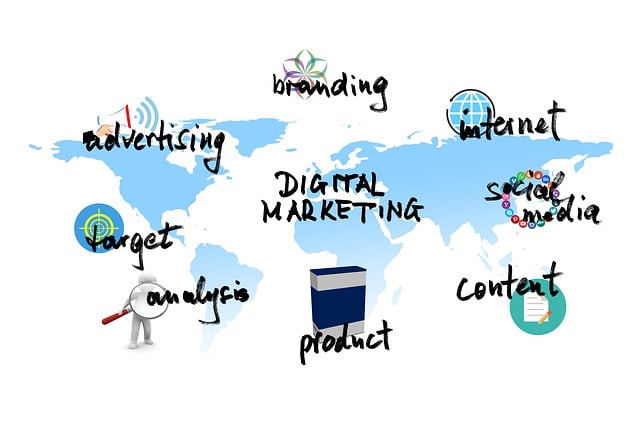AI governance frameworks are crucial for responsible integration of artificial intelligence in restaurant operations, addressing data privacy, algorithmic bias, and regulatory compliance. These frameworks build public trust and enable restaurants to harness AI marketing automation's potential, including personalized promotions, efficient inventory management, and enhanced customer experiences. By adopting robust AI governance practices, restaurants can drive business success in the digital age while adhering to industry standards and legal requirements.
In today’s digital era, Artificial Intelligence (AI) is transforming industries, including the hospitality sector. For restaurants, harnessing AI’s potential requires effective governance frameworks that balance innovation with ethical considerations. This article explores the intricacies of AI governance in restaurants, focusing on the pivotal role of marketing automation. We’ll delve into strategies for implementation and optimization, showcasing how AI marketing automation can enhance operations, improve customer experiences, and drive business success.
- Understanding AI Governance Frameworks for Restaurants
- The Role of Marketing Automation in AI Governance
- Implementing and Optimizing AI Strategies for Restaurant Success
Understanding AI Governance Frameworks for Restaurants

AI governance frameworks play a pivotal role in shaping the responsible integration of artificial intelligence within restaurant operations, particularly with the advent of AI marketing automation for restaurants. These frameworks ensure that AI systems adhere to ethical standards and regulatory compliance, mitigating potential risks associated with data privacy, algorithmic bias, and transparency. By establishing clear guidelines on data collection, usage, and storage, they foster public trust, a key aspect in gaining consumer acceptance of AI technologies.
For instance, a well-defined AI governance structure for restaurant marketing automation would encompass policies that dictate how customer data is gathered and utilized for personalized promotions and recommendations. It should also outline procedures to address biases in AI algorithms that may inadvertently discriminate against certain demographics. Effective frameworks empower restaurants to leverage the benefits of AI while maintaining operational integrity and promoting customer satisfaction, ultimately driving business success in the digital age.
The Role of Marketing Automation in AI Governance

In today’s digital era, AI marketing automation has emerged as a powerful tool for restaurants to streamline their operations and enhance customer experiences. By leveraging machine learning algorithms, businesses can automate various marketing tasks such as personalized menu recommendations, targeted promotions, and efficient email campaigns. This not only saves time and resources but also enables restaurant owners to focus on delivering exceptional service.
AI governance frameworks play a crucial role in ensuring that this automation remains ethical and effective. These frameworks help restaurants navigate the complex landscape of data privacy, algorithmic bias, and regulatory compliance. By implementing robust AI governance practices, businesses can maintain transparency, foster trust among customers, and leverage the full potential of AI marketing automation for restaurants while adhering to industry standards and legal requirements.
Implementing and Optimizing AI Strategies for Restaurant Success

In today’s digital era, implementing AI marketing automation for restaurants isn’t just a trend—it’s a strategy that can significantly enhance operational efficiency and customer engagement. By leveraging AI, restaurant owners can optimize menu planning by analyzing sales data and predicting popular dishes, ensuring inventory management is streamlined and costs are minimized. Moreover, AI-driven customer relationship management (CRM) systems enable personalized marketing campaigns, allowing restaurants to target specific demographics with tailored promotions and loyalty programs.
AI strategies can also transform the dining experience. From automated ordering systems that expedite service to predictive analytics for staffing and kitchen management, these tools enhance both staff productivity and customer satisfaction. By continuously learning from customer interactions, AI algorithms can identify trends, adapt to changing preferences, and even suggest menu innovations, keeping restaurants at the forefront of their game in a competitive market.
AI governance frameworks and marketing automation are transforming the restaurant industry, offering efficient solutions for operations and customer engagement. By implementing these strategies, restaurants can enhance their decision-making processes, optimize marketing efforts, and stay ahead in a competitive market. AI marketing automation for restaurants is not just a trend but an essential tool to ensure success in today’s digital era, providing personalized experiences and streamlining daily tasks.
